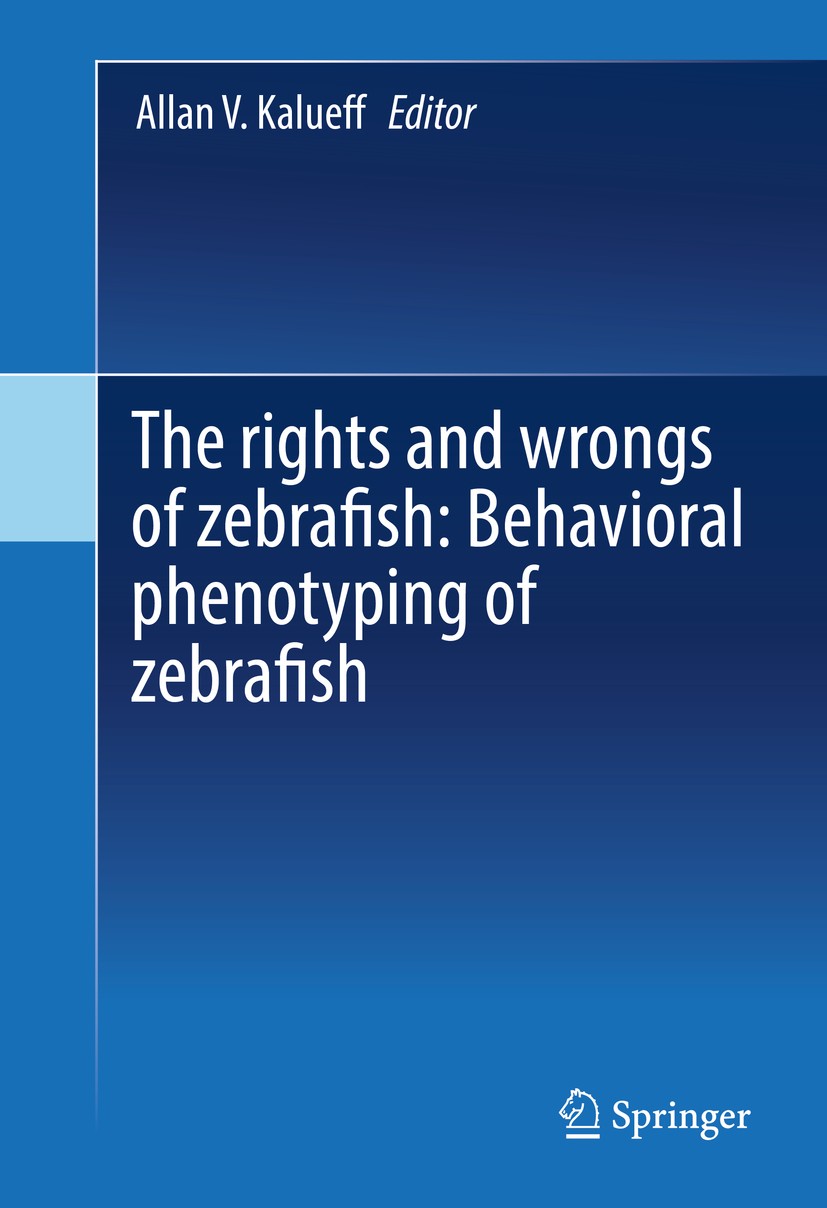| 书目名称 | The rights and wrongs of zebrafish: Behavioral phenotyping of zebrafish | | 编辑 | Allan V. Kalueff | | 视频video | http://file.papertrans.cn/923/922569/922569.mp4 | | 概述 | Outlines the use of zebrafish to study the pathological mechanisms underlying neuropsychiatric disorders.Features contributions by leading international scholars.Explores how zebrafish models can be u | | 图书封面 |  | | 描述 | Animal models and tests have become increasingly important for biomedical research, enabling a better understanding of pathogenic pathways involved in various human disorders. Over the last decades, zebrafish (Danio rerio) have become a very popular model organism in biomedical research. Recently, this fish has entered the waters of neuroscience and biological psychiatry, quickly becoming an indispensable model species in this field. With a high genetic homology to humans (~75% based on coding regions), it is not surprising that humans and fish are very similar physiologically (and behaviorally). .Therefore, it should not come as a surprise that zebrafish can be an excellent model of human neuropsychiatric disorders. While some classical psychiatrists may not too easily be persuaded by this generalization, the current book “The rights and wrongs of zebrafish: principles of behavioral phenotyping and CNS disease modeling” explains, in a domain-by-domain manner, how exactly zebrafish models can be used to target a wide range of human brain disorders and aberrant phenotypes. .The contributors to this book are leading international scholars whose work spearheads innovative zebrafish ne | | 出版日期 | Book 2017 | | 关键词 | mutagenesis; transgenesis; phenotypes; anxiety; depression; endophenotypes; sleep; neurotoxicity | | 版次 | 1 | | doi | https://doi.org/10.1007/978-3-319-33774-6 | | isbn_softcover | 978-3-319-81598-5 | | isbn_ebook | 978-3-319-33774-6 | | copyright | Springer International Publishing Switzerland 2017 |
The information of publication is updating

|
|
 |Archiver|手机版|小黑屋|
派博传思国际
( 京公网安备110108008328)
GMT+8, 2026-2-7 12:40
|Archiver|手机版|小黑屋|
派博传思国际
( 京公网安备110108008328)
GMT+8, 2026-2-7 12:40


